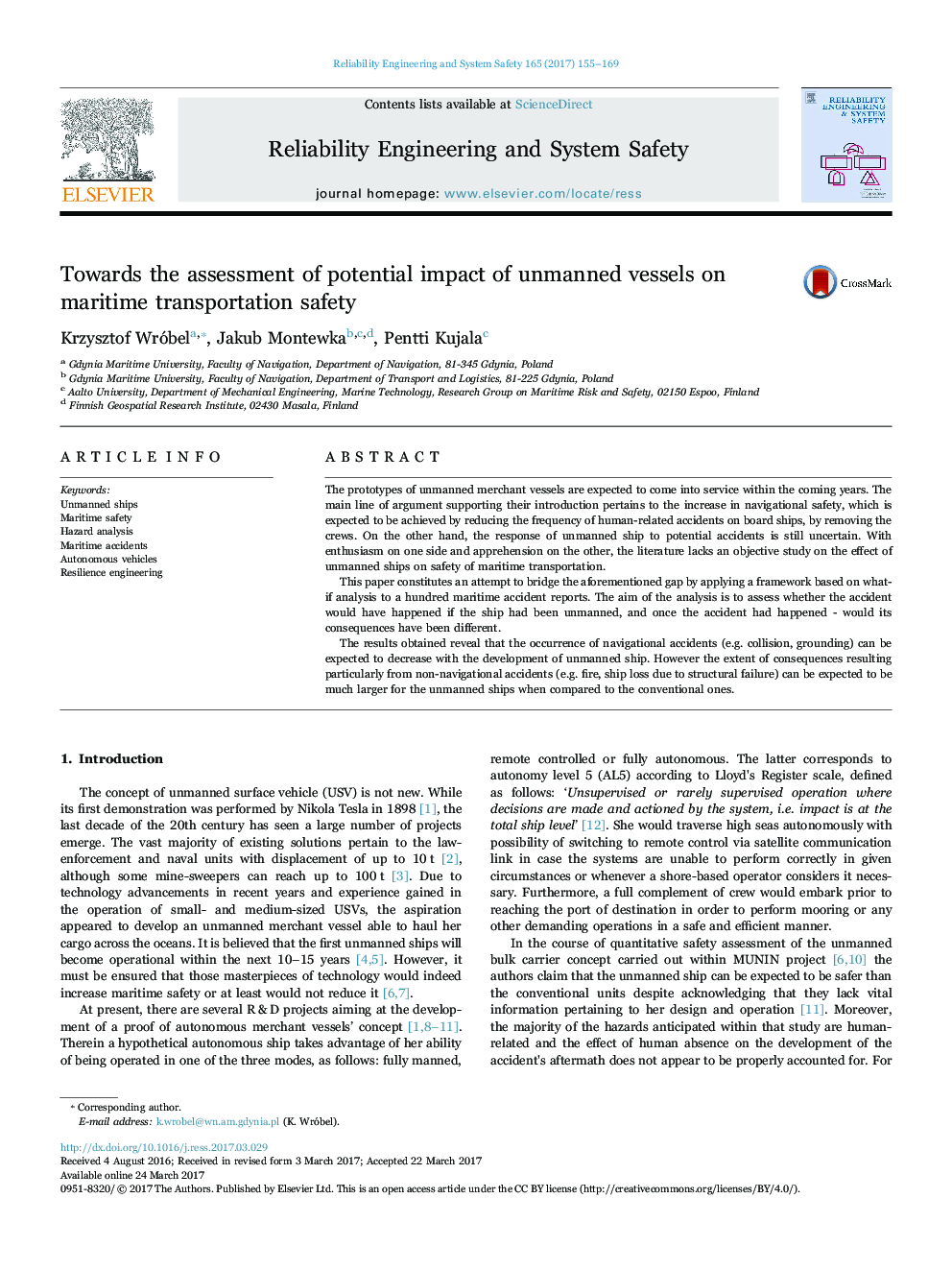| Article ID | Journal | Published Year | Pages | File Type |
|---|---|---|---|---|
| 5019316 | Reliability Engineering & System Safety | 2017 | 15 Pages |
â¢Framework assessing effect of unmanned ships on the safety of navigation is presented.â¢HFACS-MA and what-if analysis are applied over 100 maritime accident reports.â¢Only known safety hazards are anticipated, leaving out of the scope security issues.â¢The qualitative assessment is conducted along with the uncertainty evaluation.
The prototypes of unmanned merchant vessels are expected to come into service within the coming years. The main line of argument supporting their introduction pertains to the increase in navigational safety, which is expected to be achieved by reducing the frequency of human-related accidents on board ships, by removing the crews. On the other hand, the response of unmanned ship to potential accidents is still uncertain. With enthusiasm on one side and apprehension on the other, the literature lacks an objective study on the effect of unmanned ships on safety of maritime transportation.This paper constitutes an attempt to bridge the aforementioned gap by applying a framework based on what-if analysis to a hundred maritime accident reports. The aim of the analysis is to assess whether the accident would have happened if the ship had been unmanned, and once the accident had happened - would its consequences have been different.The results obtained reveal that the occurrence of navigational accidents (e.g. collision, grounding) can be expected to decrease with the development of unmanned ship. However the extent of consequences resulting particularly from non-navigational accidents (e.g. fire, ship loss due to structural failure) can be expected to be much larger for the unmanned ships when compared to the conventional ones.
